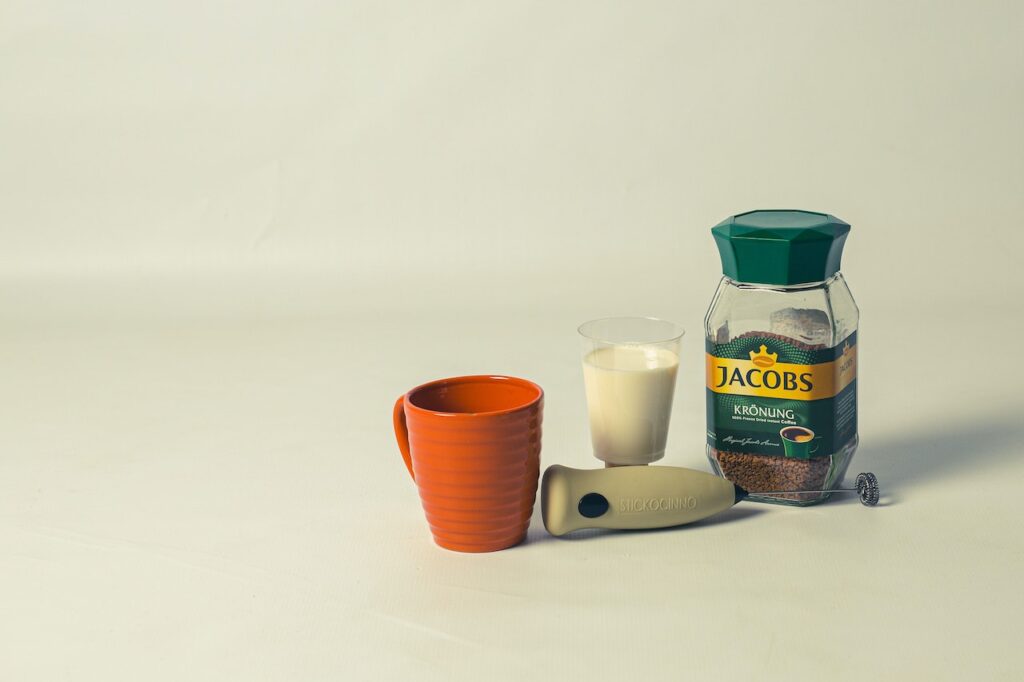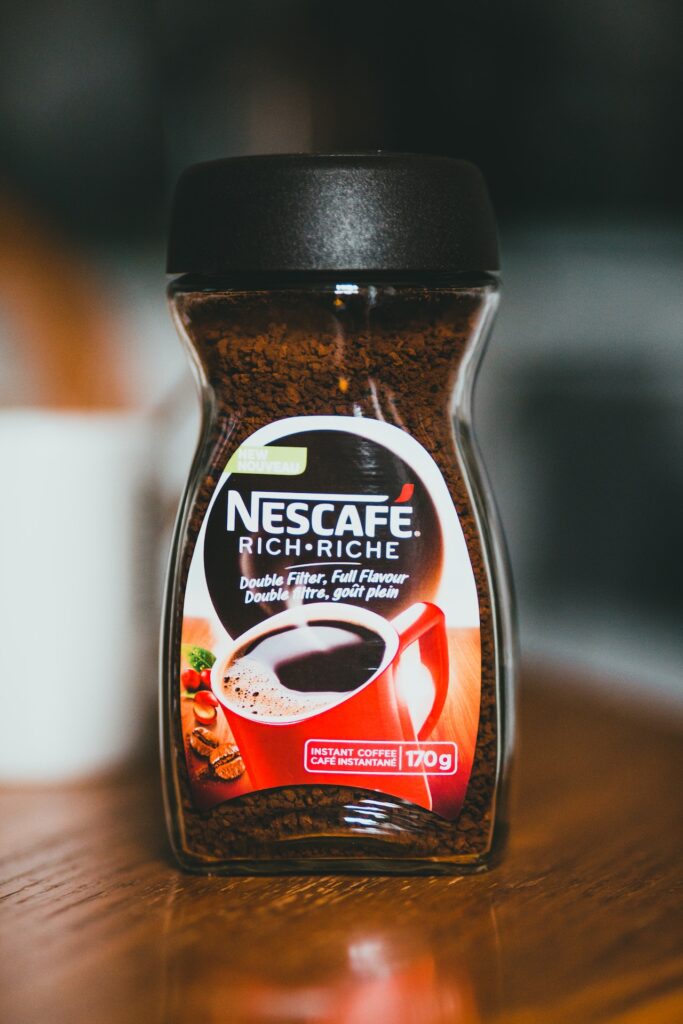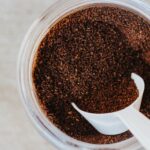Have you ever wondered, “is instant coffee filtered?” This can be confusing if you’ve never thought about it before. Is this process the same thing as brewing coffee? Or, for that matter, what does it mean for something to be “filtered” when it comes to coffee?
Contents
Is Instant Coffee Filtered?
Instant coffee is not filtered coffee. It is made by brewing a concentrated liquid and then drying it into a powder or granules packaged as small, single-use portions or as a larger block. Filtered coffee results from a brewing method where hot water is passed through ground coffee to extract the flavor and oils. The result is a concentrated liquid consumed straight or with added milk or cream.

The critical difference between these two types of coffee is that instant has been pre-brewed and dried into granules or powder. However, filter coffee can be made from either ground beans or whole bean powder.
Difference Between Instant and Filtered Coffee
There are many differences between instant and filtered coffee. The most obvious difference is the process of making them.
Preparation Time
The most significant difference between the two types of coffee is the time and effort involved in brewing them. Instant takes less than 5 minutes to prepare, while filter coffee can take up to 10 minutes or more, depending on how much time you want to spend making it and how fast your drip brewer works.
Flavor
Another critical difference between instant and filtered is the taste—or lack thereof—in the latter category. Instant typically uses lower-quality beans that have been freeze-dried instead of roasted and ground fresh for each batch. This causes them to lose most of their aroma and flavor during processing, leaving behind a bland beverage with little taste other than bitter brown water.
Filtering coffee involves passing water through a filter containing ground coffee beans. This process results in a more potent brew that retains more flavor than instant.
Health Benefits
Coffee is a source of dietary antioxidants and phytochemicals with beneficial physiological effects, such as
- Antihypertensive
- Antithrombotic
- Anti-inflammatory
Weight Loss
Instant coffee contains less caffeine than traditionally brewed coffee, which can help keep your appetite in check and prevent cravings between meals. This can lead to reduced calorie intake and weight loss over time.
Heart Health
Studies have shown that drinking two to three regular coffees daily can reduce the risk of clogged arteries by up to 10%-15% compared with people who don’t drink.
Anticancer Activities
It contains higher concentrations of polyphenols than its filtered counterpart—another critical component of many popular diet programs. These compounds reduce the risk of cancer and heart disease and improve cognitive performance in older adults.
Disadvantages of Instant Coffee Compared to Filtered Coffee
Instant is often perceived as a cheap, inferior product that anyone can make at home in just a few minutes. However, there are many disadvantages to taking it compared to filtered coffee.
Low Quality
Instant coffee is a freeze-dried soluble powder brewed by simply adding hot water. Mixing it with water doesn’t recover the flavor and aroma lost during production. In addition, it often contains artificial ingredients and preservatives that can cause health issues such as heartburn and migraines.

Unpleasant Taste
Instant coffee sometimes tastes sour because it contains inferior quality beans roasted at lower temperatures than regular ground or whole bean coffees. This means that the natural oils haven’t been extracted from the beans during the roasting process, thus resulting in an inferior tasting brew compared to the filtered variety.
Less Caffeine
Instant contains less caffeine than regular coffee-between 30 and 100 mg of caffeine per cup, while brewed coffee has between 70 and 150 mg per cup.
Related Questions
Is Nescafe Classic Instant Filtered?
The Nescafé Classic instant coffee is not filtered. The process of making this product involves boiling water and adding the ground coffee powder to it. This mixture is then left to stand for a few minutes before pouring into cups or mugs, where it is enjoyed as a hot beverage.
What Is the Difference Between Filtered and Unfiltered Coffee?
The main difference between filtered and unfiltered is the amount of sediment left behind in your cup. Unfiltered varieties will have more sediment than filtered ones because they have not been processed through a paper or metal filter before brewing.
Conclusion
Instant coffee is ground coffee that has been freeze-dried and pulverized into powder. Filtered coffee is made from freshly ground beans and hot water, which steeps in a filter. Both coffees have antihypertensive, antithrombotic, anti-inflammatory, and anticancer activities. However, instant coffee is of lower quality and has an unpleasant taste.

